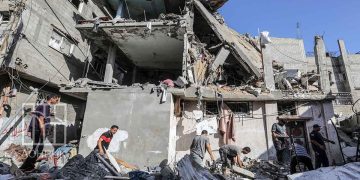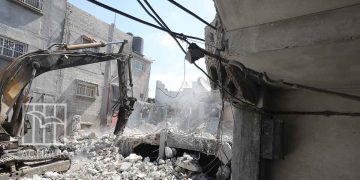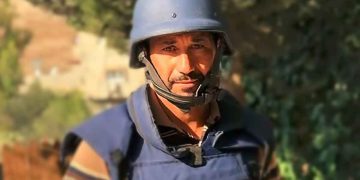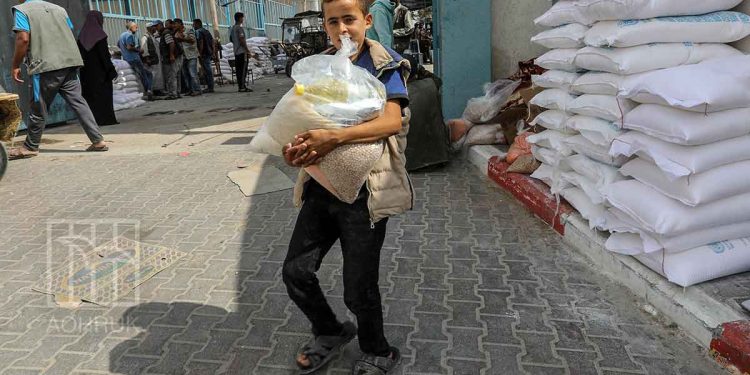The Israeli occupation authorities (IOA) blocked more than half of the UN planned humanitarian aid deliveries to northern Gaza in June.
Speaking at a news conference, spokesman to the secretary general, Stephane Dujarric, said there are “little or no” available shelters or critical supplies in the areas where people have been forcibly displaced.
Aid distribution through the Karem Abu Salem crossing was “nearly impossible” due to security and fuel shortages, he added.
“The unexploded ordinance continues to pose a significant risk to the lives of people all across Gaza, that includes internally displaced people and people trying to return to areas from once they came, children are particularly at risk,” he added.
He said a 9-year-old girl was killed by unexploded ordnance in Khan Yunis last Saturday.
“It just shows yet again, that no place is safe in Gaza, that more efforts need to be made to protect civilians,” he added.
The UN official further pointed out that the Israeli authorities blocked more than half of the 115 planned humanitarian aid deliveries to northern Gaza in June.
Along the same line; the UN World Food Program reported that some aid was transferred from the US floating dock in Gaza to its warehouses after the dock was removed under the pretext of high sea waves and bad weather conditions.
For her part, UNRWA official Louise Wateridge described the “extremely dire” living conditions in the Gaza Strip, denouncing the “unbearable” conditions in the besieged territory due to the aid entry restrictions.
“And when very little trucks and very little amount of aid comes through, of course there’s going to be a huge rush from the population to go and get it.”
“So that is the situation that we’re facing now and the only answer to that is to provide more aid, to provide more food, to provide more medicine.”
Due to the Israeli occupation’s ongoing closure of border crossings and the dearth of trucks entering the north, the roughly 700,000 residents of the northern Gaza Strip experience a severe shortage of food and vegetables, reinforcing the “specter of famine.”
On May 7; the Israeli occupation seized control of the Gaza Strip side of the Rafah border crossing, moving forward with an offensive in the southern city and restricting the flow of aid into the Gaza Strip espcially in northern Gaza.
Health and relief workers earlier warned that “famine in the Gaza Strip during this May, unless the Israeli occupation lifts restrictions on aid, the aggression stops, and vital services are restored” was imminent.
The World Health Organization recently warned that many residents of the Strip are exposed to a “catastrophic level of hunger and famine-like conditions.”
It should be emphasized that the International Covenant on Economic, Social, and Cultural Rights and the Universal Declaration of Human Rights both guarantee the right to food, and they both call on the international community and humanitarian organizations to collaborate in order to deliver the required food aid to the Gaza population.






























